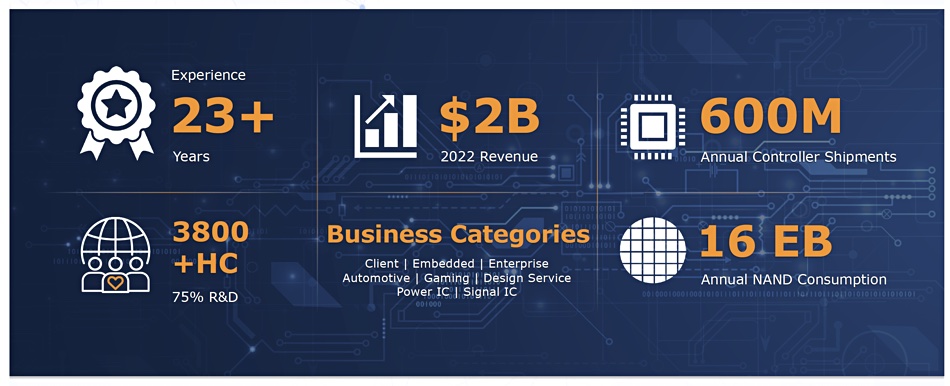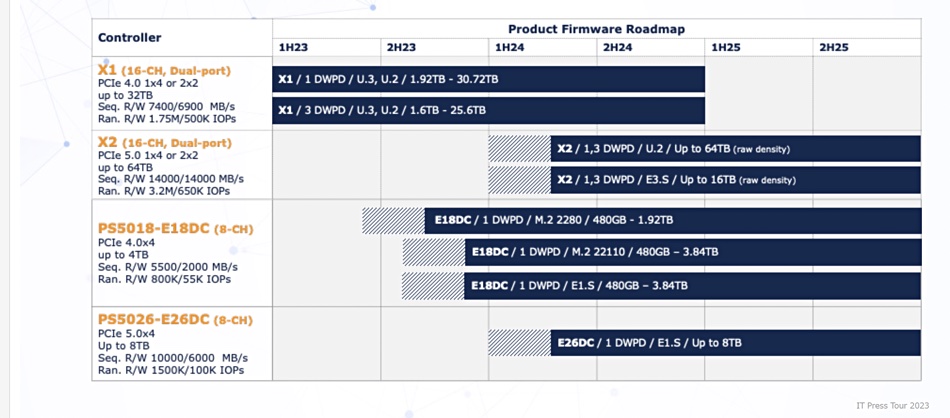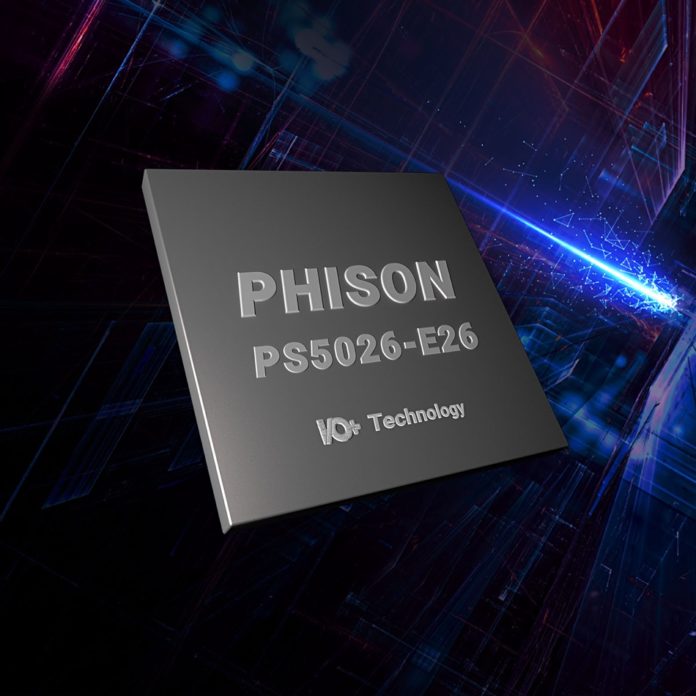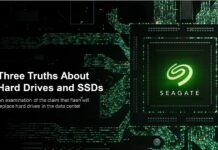Phison is a big player in SSDs that, despite its bulky size, relatively few people in Europe know about. The company makes complete SSDs as well as a range of components including retimers, controllers and firmware. It’s an original design partner for the main NAND foundry suppliers – Kioxia/WD, Micron, Samsung, SK hynix/Solidigm, YMTC, and Kingston – and wants to enter the hyperscaler/large enterprise market for customized SSDs .

Michael Wu, president of Phison USA, said Phison buys 16 exabytes of raw NAND a year, purchasing at wafer level, and has its SSD controllers manufactured by TSMC. “We always put someone else’s name on it,” he said.
The NAND foundry suppliers make more NAND than they themselves can use and Phison mops up the excess to build white-label SSDs. It can’t brand its own SSDs because that would compete with its customers.
The Taiwanese biz has 4,000 employees, the majority being engineers, and turned over $2 billion in revenues in 2022, shipping 600 million controllers. It designs, makes and sells drives and components for PC OEMs, gaming consoles, and the automotive, datacenter and industrial embedded markets. One out of every four SSDs shipped with Phison inside in 2022, we’re told.

Wu told B&F, attending an IT Press Tour, that Phison controllers are based on ASICs, FPGAs being too large and power-hungry. Phison controllers have a large number of small cores, each dedicated to specific jobs and sipping power, while competing controller designs have fewer and larger cores that timeshare jobs and suck up more electricity, he claimed.
CTO Sebastien Jean added: “The X1 controller usse 2 x Arm R5 CPUs and 32 other embedded CPUs; Andes co-processors, to split up the tasks.” Phison’s X1 controller runs cooler and faster with fewer delays as a result, he said.
Seagate is a long-term Phison buyer and partner for its SSDs, starting in 2017 when the company released the Nytro 141 SSD. It incorporated Phison for its NVMe SSD, using Phison’s Imagin+ design lab platform. Nytro and IronWolf Pro are some of Seagate’s brands based on Phison technology. The Seagate Nytro 5000 series uses SK hynix TLC 128-layer NAND and Phison’s PS5020-X1 drive under the Nytro label.

Micron’s Crucial T700 PCIe gen 5 SSD actually has Phison inside as is its 1TB 2280 M.2 SSD. Marvell is a Phison competitor in the controller market, but it does not make complete SSDs.
As Phison is a design partner for the big SSD suppliers, it is among the first to get involved with new SSD technologies such as the latest layer count 3D NAND, QLC-format cells and PCIe interface generations.
Wu said: “We are the early NAND enabler.”
It is sometimes the first to market and shipped the world’s first PCIe gen 4 in 2019. The following year it shipped the highest capacity M.2 drive, the first PCIe gen 4 QLC drive and the highest capacity 2.5-inch SSD. The fastest PCIe gen 4 drive in 2021 was a Phison product. It released and shipped its E26 PCIe gen 5 client SSD this year.
“Phison product is in the early SSD swim lane going forward,” said Wu.
A PCIe gen 6 drive could be available in about two years: the company is talking to AMD, Intel and Ampere about a CXL SSD. It could have both CXL and NVMe accessibility and could avoid the overhead of having an on-drive file system.
Wu and Jean reckon large enterprise customers that want SSDs optimized to their own specifications should consider going down the Phison route. “We are talking to some of them,” Jean told us.








